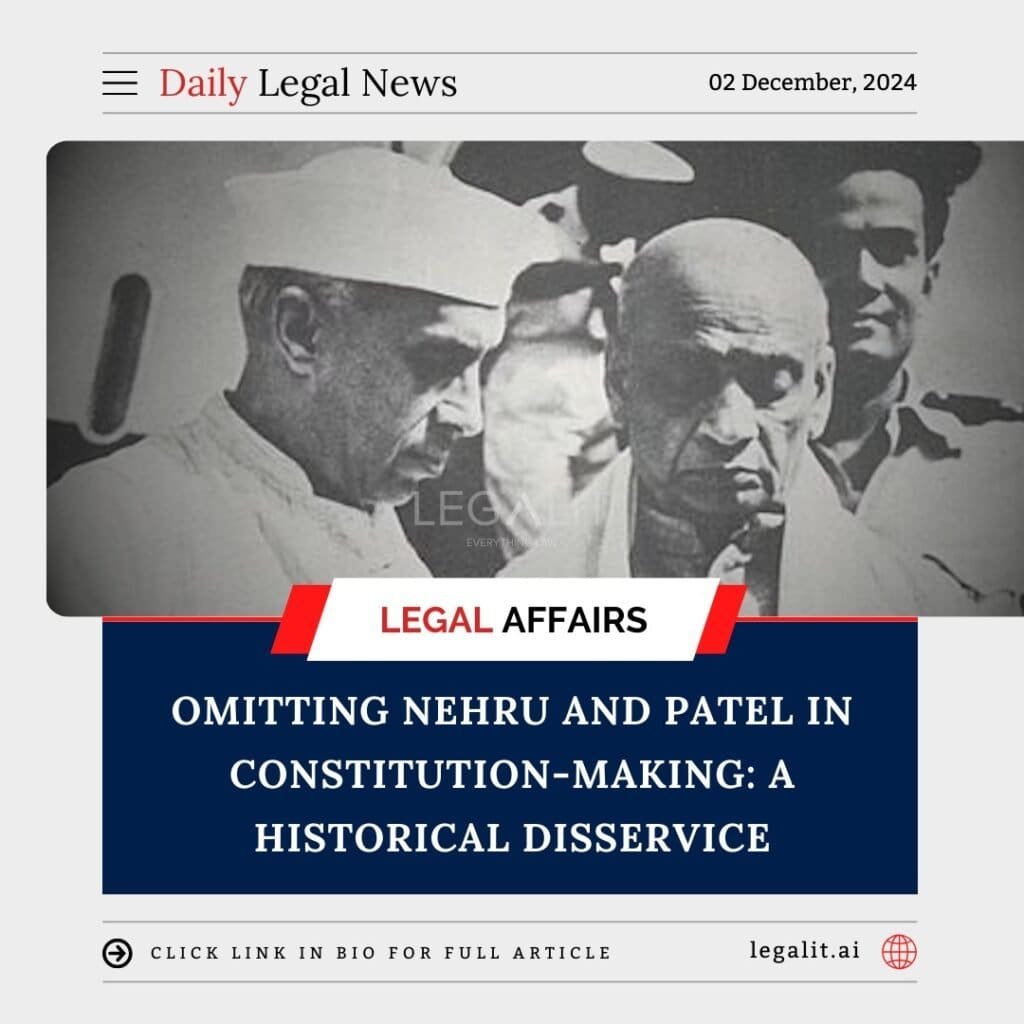
The omission of Jawaharlal Nehru and Sardar Vallabhbhai Patel’s pivotal roles in the Constitution-making process from contemporary discussions has drawn criticism, with many historians and scholars calling it a disservice to the historical narrative.
Background:
As key members of the Constituent Assembly, both Nehru and Patel played integral roles in shaping India’s Constitution. Nehru, as the first Prime Minister, set the tone for the Assembly’s deliberations with his “Objectives Resolution,” which outlined the guiding principles of the Constitution. Patel, known as the “Iron Man of India,” was instrumental in addressing the princely states’ integration and chaired the Advisory Committee on Fundamental Rights.
Concerns Over Omission:
Critics argue that sidelining Nehru and Patel’s contributions diminishes an accurate understanding of the Constitution’s evolution. Their leadership, vision, and ability to navigate ideological differences were crucial in crafting a framework that upheld democratic values, secularism, and social justice.
The Need for Inclusive Narratives:
A comprehensive portrayal of the Constitution-making process should acknowledge the collective efforts of all members of the Constituent Assembly, including Nehru and Patel. Highlighting their contributions ensures the preservation of historical accuracy and fosters an appreciation of India’s democratic legacy.
Conclusion:
The omission of Nehru and Patel in discussions on the Constitution-making process risks eroding the recognition of their contributions. Upholding historical integrity by acknowledging their roles is essential to honor the legacy of India’s founding leaders.